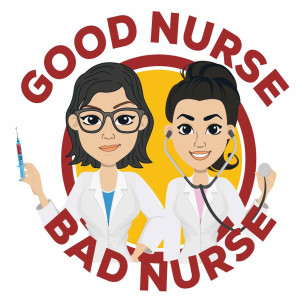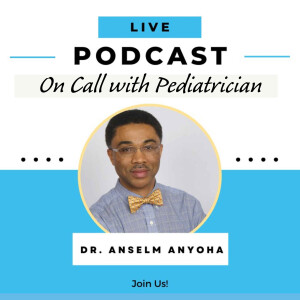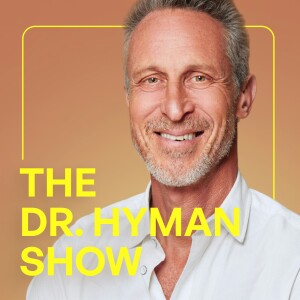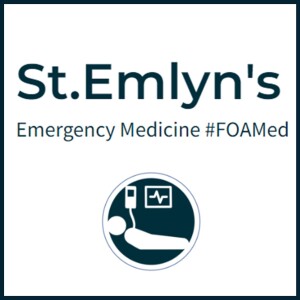Optimizing Communication in Healthcare: Key Takeaways from the SMACC Conference
At the recent SMACC conference in Dublin, a notable workshop led by Liz Crowe and Steve Philpott focused on enhancing communication skills in healthcare. This workshop emphasized the importance of understanding one's own communication style and how it impacts interactions with patients, colleagues, and even personal relationships.
Understanding Communication StylesThe workshop began by highlighting that communication is influenced by personality traits, which shape how we express and receive information. One key distinction is between extroverts and introverts. Extroverts often gain energy from social interactions and tend to speak quickly, sharing ideas readily. In contrast, introverts recharge through solitude and may take longer to articulate their thoughts. Recognizing these traits is crucial in healthcare settings, where both types bring valuable strengths to a team. For instance, extroverts may lead discussions and drive actions, while introverts often provide thoughtful insights after careful consideration.
Balancing Team DynamicsA critical takeaway was the importance of having a balanced mix of personality types within a team. A group dominated by extroverts might lack depth in decision-making, while a team of introverts might struggle with timely execution. Effective teams combine these traits, ensuring diverse perspectives and approaches. For example, when tackling tasks like developing protocols or organizing events, having both meticulous "get it right" individuals and efficient "get it done" members ensures thorough and timely outcomes.
Practical Communication StrategiesThe workshop provided several practical strategies to improve communication:
1. SignpostingSignposting involves clearly highlighting key points throughout a conversation, ensuring they are understood and remembered. In healthcare, this technique is essential for communicating critical information, such as diagnoses or treatment plans. By repeatedly emphasizing important messages, healthcare professionals can help patients and families grasp complex information more effectively.
2. Avoiding "But"A simple yet powerful language adjustment discussed was avoiding the word "but." Using "but" can negate the positive aspects of a statement, creating a dismissive tone. Instead, substituting "but" with "and" maintains a constructive dialogue. For example, saying, "You did a great job, and improving your time management will make you even more effective," keeps the conversation positive and forward-looking.
3. First and Last ImpressionsThe first and last things said in a conversation are often the most memorable, especially in stressful situations. Setting a serious tone at the beginning of a difficult conversation and summarizing key points at the end ensures that the main messages are clear. This approach is crucial when delivering bad news or discussing sensitive topics, as it helps manage expectations and emotions.
4. Chunking Information and Allowing PausesBreaking down complex information into smaller, manageable chunks and allowing pauses helps listeners process and understand better. This technique is particularly useful when communicating with patients and families who may be overwhelmed with medical jargon and stress. Pauses give them time to absorb the information and ask questions, demonstrating empathy and patience.
Handling Difficult ConversationsDiscussing sensitive topics, such as poor prognosis or end-of-life care, requires a careful balance of empathy and honesty. The workshop emphasized acknowledging optimism bias—the tendency to hold onto hope even when the prognosis is poor. Healthcare professionals should acknowledge the family's hope while gently grounding them in reality. For example, expressing understanding of their hopes while clearly stating the medical expectations helps families navigate difficult emotions.
The Platinum RuleThe platinum rule, which goes beyond treating others as you would like to be treated, focuses on treating others as they would like to be treated. This involves understanding the communication preferences of patients and families. Some may prefer detailed explanations, while others might want a broader overview. Asking about their preferences and tailoring the communication accordingly enhances their sense of control and satisfaction.
Staying ConnectedMaintaining a connection with patients and families is crucial, especially in challenging situations. While outcomes may not always be within control, the process of communication is. Ensuring that patients and their families feel heard, respected, and supported can make a significant difference in their healthcare experience. This connection is not just about delivering information but also about showing empathy and understanding.
ConclusionThe SMACC conference workshop provided invaluable insights into improving communication in healthcare. By understanding our own communication styles, appreciating the strengths of different personality types, and employing practical strategies like signposting, avoiding "but," and using the platinum rule, healthcare professionals can enhance their interactions with patients and colleagues. Effective communication is not just about conveying information; it's about building trust, understanding, and a positive work environment.
These skills are essential for providing high-quality patient care and fostering a supportive workplace culture. The workshop highlighted that good communication can prevent misunderstandings, reduce the likelihood of complaints, and ultimately save time. By investing a few extra minutes in effective communication, healthcare professionals can significantly improve patient outcomes and satisfaction.
In summary, the key to effective communication in healthcare lies in understanding ourselves and others, being clear and empathetic, and continuously refining our skills. Whether in patient interactions or team collaborations, these principles help create a more compassionate and efficient healthcare environment.
More Episodes
Ep 253 - Highlights from the London Trauma Conference 2024
 2024-12-11
2024-12-11
 659
659
Ep 252 - ECMO in Trauma with Chris Bishop at Tactical Trauma 24
 2024-12-04
2024-12-04
 1.1k
1.1k
Ep 251 - Bad Behaviours in Teams with Liz Crowe at Tactical Trauma 24
 2024-11-27
2024-11-27
 1.3k
1.3k
Ep 250 - Monthly Round Up September 2024 - Patient Experience in the ED, Dirty Adrenaline, and More!
 2024-11-20
2024-11-20
 1.3k
1.3k
Ep 249 - Care in the Hot Zone with Claire Park at Tactical Trauma 2024
 2024-11-14
2024-11-14
 1.4k
1.4k
Ep 248 - Prehospital eCPR with Alice Hutin at Tactical Trauma 2024
 2024-11-06
2024-11-06
 1.4k
1.4k
Ep 247 - August 2024 Round-Up - Goldilocks Moments, Nasal Analgesia, and Public Health in the ED
 2024-10-30
2024-10-30
 1.3k
1.3k
Ep 246 - Simulation for Elite Team Performance with Andrew Petrosoniak at Tactical Trauma 2024
 2024-10-23
2024-10-23
 1.5k
1.5k
Ep 245 - Leading through failure with Kevin Cyr at Tactical Trauma 2024
 2024-10-18
2024-10-18
 1.9k
1.9k
Ep 244 - July 2024 Monthly Update - Chest Pain, REBOA, Lidocaine patches and lots of paediatric emergency medicine
 2024-10-06
2024-10-06
 1.5k
1.5k
Ep 243 - The Subarachnoid Haemorrhage in Emergency Department (SHED) Study
 2024-09-26
2024-09-26
 1.8k
1.8k
Ep 242 - Prehospital Neuroprotection with Ed Langford at PREMIER 2024
 2024-08-21
2024-08-21
 1.6k
1.6k
Ep 241 - Paediatric Palliative Care with Tim Warlow at PREMIER 2024
 2024-08-14
2024-08-14
 1.2k
1.2k
Ep 240 - June 2024 Monthly Round Up - Nebulised Ketamine, Risky Intubations, Better Presentations, DSED, Preoxygenation and more
 2024-08-07
2024-08-07
 1.8k
1.8k
Ep 239 - Button Battery Ingestion with Francesca Steadman at PREMIER 2024
 2024-07-31
2024-07-31
 1.4k
1.4k
Ep 238 - Positive and Negative Predictive Values: Critical Appraisal Nugget
 2024-07-24
2024-07-24
 1.3k
1.3k
Ep 237 - Hybrid Closed Loop Insulin Pumps with Nicola Trevelyan at PREMIER 2024
 2024-07-17
2024-07-17
 1.3k
1.3k
Ep 236 - Occlusive Myocardial Infarction, ECGs and AI with Steve Smith
 2024-07-10
2024-07-10
 1.9k
1.9k
Ep 235 - Eating Disorders in the Emergency Department with Anna Kyle at PREMIER 2024
 2024-07-02
2024-07-02
 1.4k
1.4k
Ep 234 - May 2024 Monthly Round Up - RCEM conference highlights, being EPIC and more
 2024-06-27
2024-06-27
 1.4k
1.4k
Create your
podcast in
minutes
- Full-featured podcast site
- Unlimited storage and bandwidth
- Comprehensive podcast stats
- Distribute to Apple Podcasts, Spotify, and more
- Make money with your podcast
It is Free
You may also like

Good Nurse Bad Nurse


The Relaxback UK Show


On Call With Dr. Anselm Anyoha


The Dr. Hyman Show


The Peter Attia Drive

- Privacy Policy
- Cookie Policy
- Terms of Use
- Consent Preferences
- Copyright © 2015-2024 Podbean.com




 iOS
iOS Android
Android